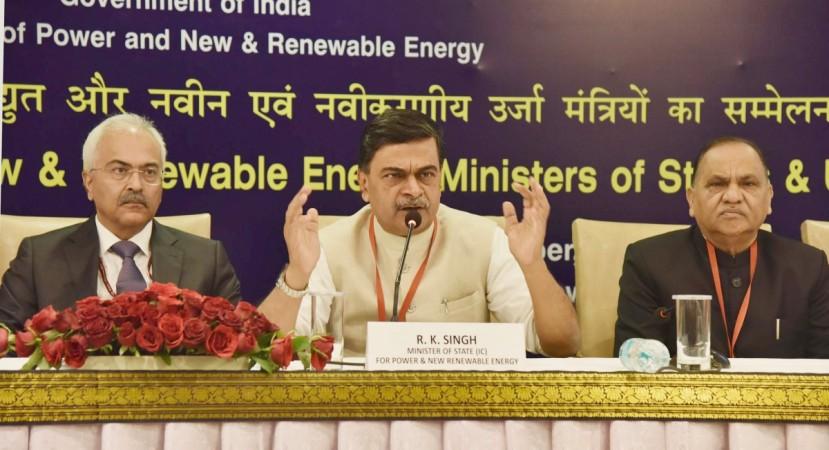
In a bid to end the bane of power outages even at a time of surplus production, the government will bring in a law to penalise distribution companies in the event of their indulging in "gratuitous load shedding", Power Minister RK Singh said on Thursday.
Briefing reporters during a break in the meeting with state Power Ministers in Delhi, Singh said such penalties are part of a roadmap being prepared by the government to fulfil its vision of providing uninterrupted electricity for all.
"In line with the government's vision of providing 24X7 power for all by March 2019, a roadmap has been laid out. We will make it a legal obligation that if after 2019 there is any gratutious load shedding, that is not caused by acts of god or technical issues, the discom will be penalised," he said.
The Union minister also said the ethical obligation of the discom as the sole licence-holder to provide uninterrupted power would now be made into an enforceable service obligation by introducing in the Electricity Act, 2003, such a penalty for outages without good reason.
To gear up to meet the demand of uninterrupted power for all, the system needs to be strengthened on all sides, he said.
Singh said changes were being proposed to the Act to remove human interface in billing, metering and collections by introducing prepaid systems that would help poor consumers and smart metering, as well as cap the permissible limit for factoring in discom losses in the tariff policy.
"There will be no system of manual meter reading. We will do away with human interface and the consumer will pay via mobile for as much power that he can afford. Besides, it will be mandated that discoms cannot pass on the billing losses to consumers. We are discussing with the regulators that after 2019, the percentage of loss permissible to be accounted for in the tariff cannot exceed 15 percent," he added.
On the question of subsidies, it has been decided to do away "with the current huge number of slabs and reduce it to around 15".
"Cross subsidies in the tariff policy will be phased out gradually bring it down to 20 per cent in the first phase," the Minister said, adding that power must be made available to industry at a reasonable cost to ensure the success of the "Make in India" programme.





!['It's not Mumbai traffic, it's air traffic': Suriya apologises to Mumbai media after paparazzi yelled At Him for making them wait for hours [Watch]](https://data1.ibtimes.co.in/en/full/806234/its-not-mumbai-traffic-its-air-traffic-suriya-apologises-mumbai-media-after-paparazzi.jpg?w=220&h=138)
![Bigg Boss 16-fame Sreejita De and Michael Blohm-Pape exchange wedding vows in dreamy Bengali ceremony [Inside Pics]](https://data1.ibtimes.co.in/en/full/806233/bigg-boss-16-fame-sreejita-de-michael-blohm-pape-exchange-wedding-vows-dreamy-bengali-ceremony.jpg?w=220&h=138)






